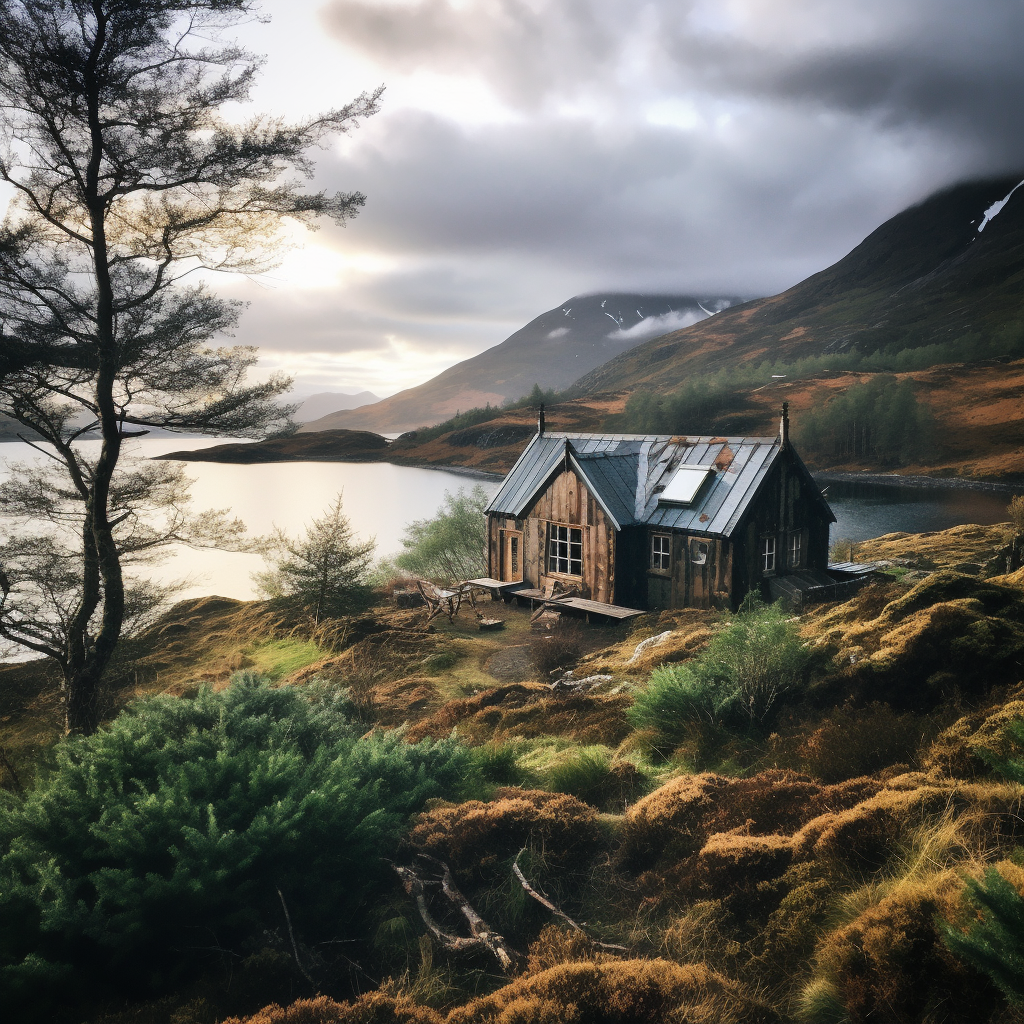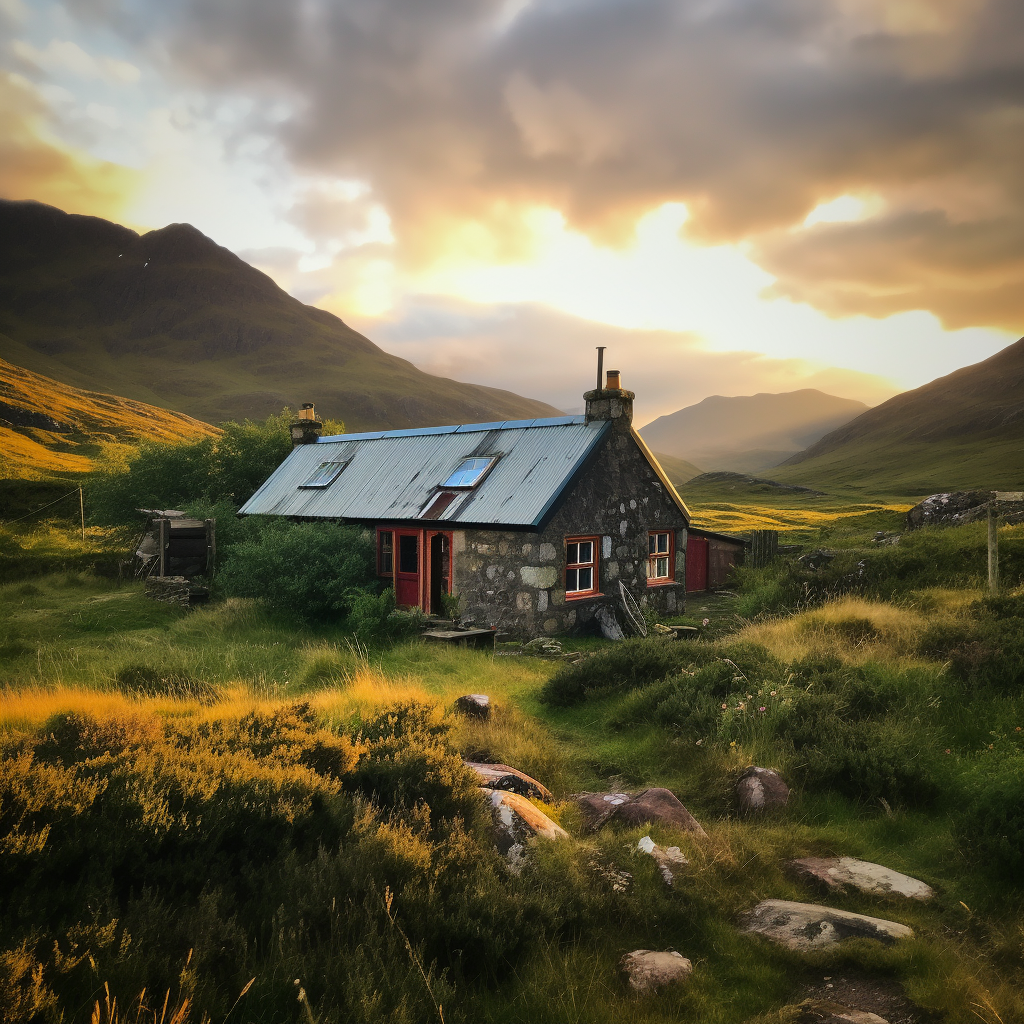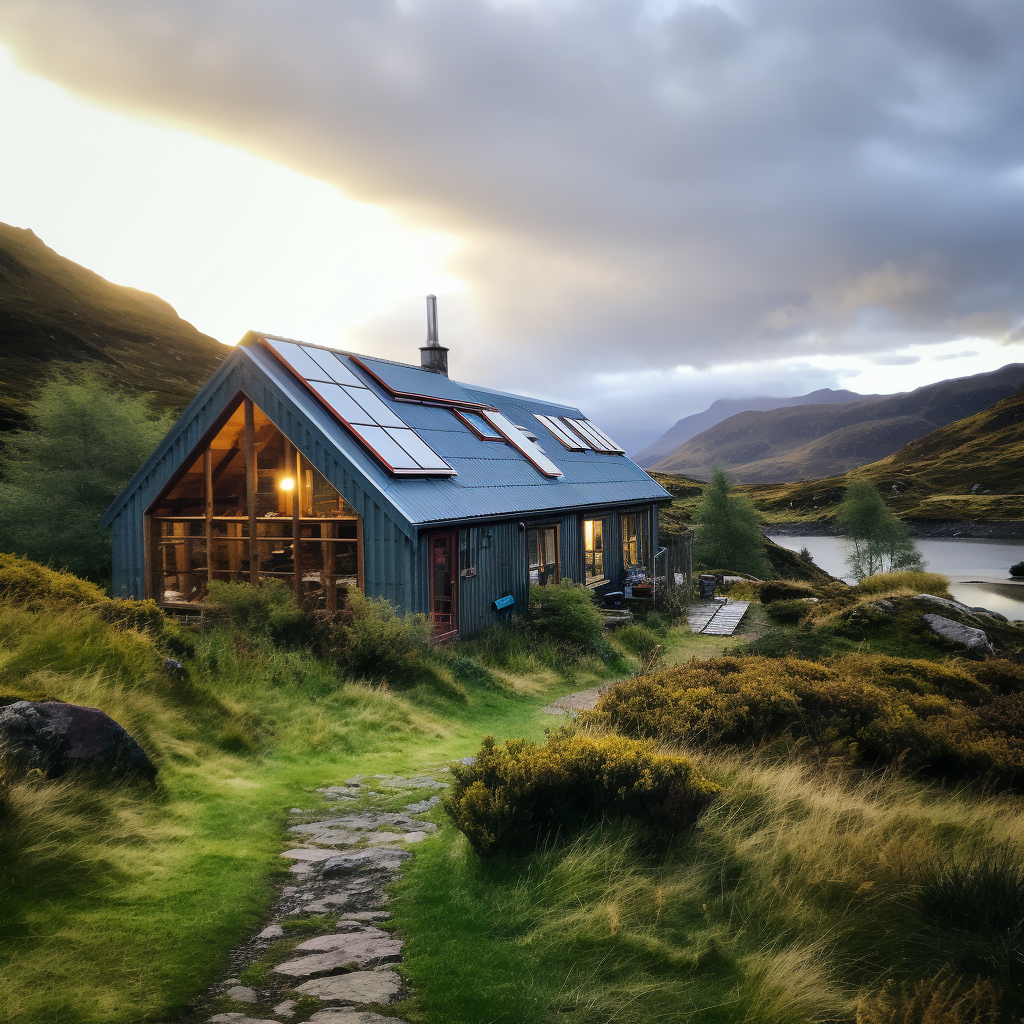Introduction
Ever wondered Can you live off-grid in Scotland? hold up… An adventure awaits for sure! Scotland with its stunning landscapes and abundant natural resources, it’s an ideal spot for self-sufficiency. From remote cottages to eco-friendly communities, there are multiple options available. Plus, the country has great potential for renewable energy sources like wind, solar, and hydroelectric power.
Living off-grid also reduces carbon footprints, plus offers cultural heritage and a strong sense of community. With an estimated 1,000 households choosing this lifestyle, it’s clear that it’s a growing movement.
Off-grid living in Scotland brings freedom from traditional constraints and a deep appreciation of nature. Embrace sustainable practices and foster relationships for a fulfilling life!
Understanding off-grid living
The concept of off-grid living in Scotland is captivating. It means depending on renewable energy sources, like solar and wind power, instead of traditional grid power. This requires disconnecting from public utilities, like electricity and water, and finding alternative ways to meet one’s needs. This way, individuals can reduce their carbon footprint and live simpler.
Scotland has unpredictable weather, remote locations, and vast landscapes, making it unique for off-grid living. It provides ample opportunities for creating renewable energy, which is essential for sustainable living. By using nature’s power, people can make self-sustaining systems and be more environmentally friendly.
When living off-grid in Scotland, careful planning and resource management is important. People need clean water, often relying on rainwater harvesting or natural springs. Waste management also needs consideration, such as composting toilets.
Additionally, this lifestyle requires adapting to a slower pace of life and being more self-reliant. People must grow their own food without relying on supermarkets or imported goods. Activities like gardening and foraging allow individuals to connect with nature while providing sustenance.
While off-grid living can be rewarding, it demands commitment, planning, and dedication. It may not be suitable for everyone due to its demands. However, for those willing to handle the challenges and benefit from sustainability and independence, off-grid living in Scotland is an unparalleled experience.
The Scotsman magazine reported that the number of people choosing to live off-grid in Scotland has been rising over the past decade. They find solace and inspiration in this alternative lifestyle. So why bother with wifi when you can have a 19th-century lumberjack experience in Scotland?

Availability of resources in Scotland for off-grid living
Scotland’s abundance of resources make it ideal for those looking to live off-grid. There’s ample freshwater, strong wind and tidal currents, and fertile soils for food production. Plus, there’s diverse wildlife for sustainable foraging and hunting. But, off-grid living requires careful planning and adaptation.
For example, the island of Eigg was able to install renewable energy systems and become one of the world’s first completely renewable-powered communities. This success story proves Scotland’s potential for embracing off-grid living.
Just remember, when it comes to off-grid living in Scotland, breaking free from society is encouraged but breaking the law is not!
Legal considerations and regulations for off-grid living in Scotland
Living off-grid in Scotland? There’s legal considerations to take into account! Adhere to the regulations for a safe and responsible lifestyle. Understanding the legal framework is key for living self-sufficiently in this stunning country.
Building standards are important when setting up an off-grid home in Scotland. Make sure to meet the requirements for energy efficiency, structure, sanitation, and fire safety. This will ensure a safe and livable environment, plus protect the ecosystem.
Planning permissions must be taken care of too. Local authorities oversee these permissions and check the development is following local plans and policies. Proper documentation is needed for evaluation before starting any construction.
Environmental impact assessments may be necessary. They analyze the effects of the development on the flora, fauna, habitats, and air quality etc. This ensures off-grid activities don’t disrupt Scotland’s natural surroundings.
Legislative reforms have been put in place to provide clarity on the legal requirements for off-grid settlers, while also promoting responsible stewardship of Scotland’s natural landscapes. This shows a progressive attitude towards alternative lifestyles and their incorporation into the existing legal framework.
Off-grid communities and initiatives in Scotland
Scotland’s off-grid living is becoming increasingly popular. People are embracing this sustainable lifestyle and saying goodbye to traditional power grids. Here are three stand-out initiatives to show what off-grid communities in Scotland can do.
First, Findhorn Ecovillage in Moray is a long-standing example. Established in 1962, they focus on ecological sustainability, spiritual well-being, and personal development. They generate power from renewables like wind turbines and solar panels, and prioritize organic farming.
The Off-Grid Community Network (OGCN) supports these off-grid projects all over Scotland. They provide resources, knowledge-sharing platforms and legal support. Workshops and collaboration are organized to help everyone get the most out of sustainable living.
The Maryhill Burgh Halls project is another interesting example. Located in Glasgow, they transformed an abandoned Victorian building into a vibrant hub with solar panels and a ground-source heat pump system. Inclusivity and community engagement are key, with events and workshops to promote green living.
Each off-grid community is unique. From innovative designs to permaculture practices, they demonstrate how you can live without conventional utilities. Laura Anderson is one example. She left Edinburgh for Talamh Life Centre near Newton Stewart and immersed herself in organic farming. She found fulfillment and empowerment in her new sustainable and self-sufficient life.
Off-grid living in Scotland is not just a trend, but a conscious choice. It empowers us to live harmoniously with nature and reduce our carbon footprint. The amazing off-grid communities and initiatives in Scotland show us the possibilities of living sustainably.

Financial aspects of living off-grid in Scotland
Living off-grid in Scotland comes with its own financial considerations. The cost of setting up an off-grid lifestyle can be high. But, there are savings in the long run.
- Investing: Setting up an off-grid life requires an upfront investment. Solar panels, batteries and water sources vary in cost depending on the size of the property and energy needs.
- Lower Bills: An advantage of living off-grid is reduced utility bills. Generating your own electricity and collecting rainwater helps cut expenses.
- Maintenance: There are upkeep costs for off-grid living. Solar panels and equipment need regular cleaning and maintenance for optimal performance.
In Scotland, the weather provides both challenges and opportunities for off-grid living. In 2018, a couple made headlines for living off-grid for seven years without public utilities. They used wind turbines and solar panels, proving it is possible to live self-sustainably in Scotland. Their story encourages others to embrace the off-grid lifestyle. Embrace the Scottish weather and enjoy being damp – it’s all part of the off-grid experience!
Practical tips and advice for those considering off-grid living in Scotland
Living off-grid in Scotland needs thoughtful preparation and thought. Here are some useful hints and advice for those wanting this exceptional lifestyle:
- Spot is key: Pick a proper spot with access to natural assets such as water and sunlight. Take into account the weather and landscape.
- Energy autonomy: Invest in renewable energy sources like solar panels or wind turbines to generate your own power.
- Water handling: Install rainwater harvesting systems or drill a well to guarantee a consistent water supply. Execute water conservation actions.
- Sustainable food production: Construct a vegetable garden or raise livestock for fresh produce and autonomy.
- Waste management: Exercise recycling, composting, and responsible waste disposal to reduce your ecological effect.
- Community assistance: Join local off-grid communities or networks to learn from others’ encounters, share resources, and construct a support system.
To fully savor off-grid living in Scotland, it’s essential to take into consideration things beyond the practical tips above. Get familiar with local laws and regulations concerning land use, building permits, and alternative systems.
Scotland has a rich legacy of people who’ve chosen to live off-grid, wanting freedom from modern technology and embracing sustainable living techniques. The longing for autonomy and connection with nature has encouraged many innovators to forge their own path in distant areas of this stunning country.
Living off-grid in Scotland can offer an extraordinary chance to reconnect with nature, cut down your carbon footprint, and lead a simpler lifestyle. With cautious preparation and determination, this difficult yet gratifying way of life can be accomplished by those daring enough to make the hop into off-grid living.
Conclusion: Living off-grid in Scotland is like having four seasons in one day, but without the option to change to the weather channel.
Conclusion
Living off-grid in Scotland is possible and sustainable! Abundant natural resources, progressive policies, and stunning landscapes make it a great choice. Plus, small-scale hydroelectric power systems generate electricity for those who choose this lifestyle. Renewable energy is also available and reliable!
Organic farming is another plus. Many individuals and communities practice self-sufficient food production. They grow their own fruits and vegetables, and raise livestock ethically. This helps them live healthier, with a lower carbon footprint. Scotland is the perfect place for an alternative lifestyle!




